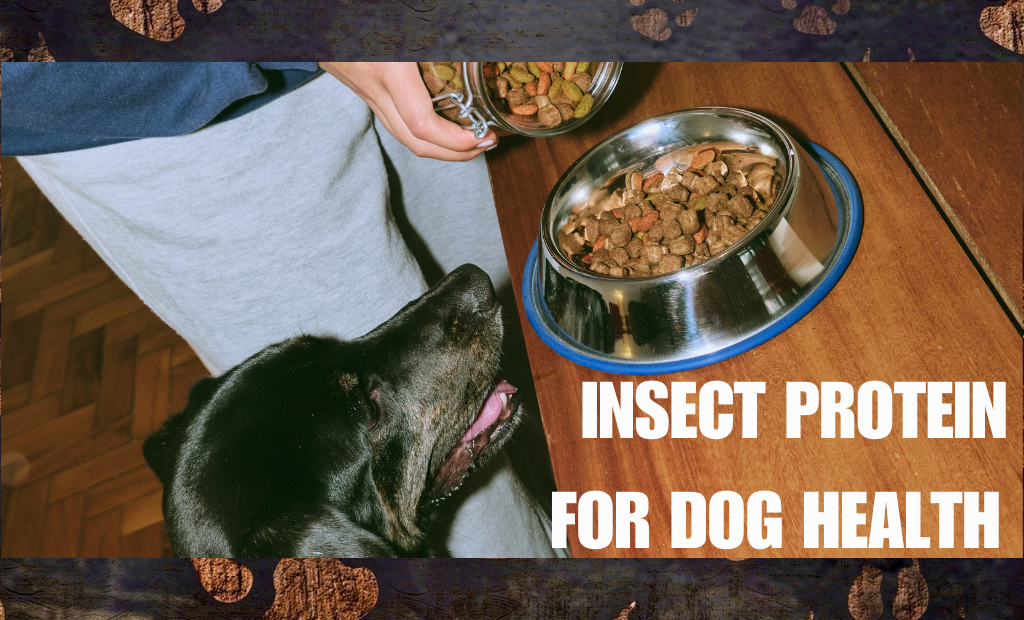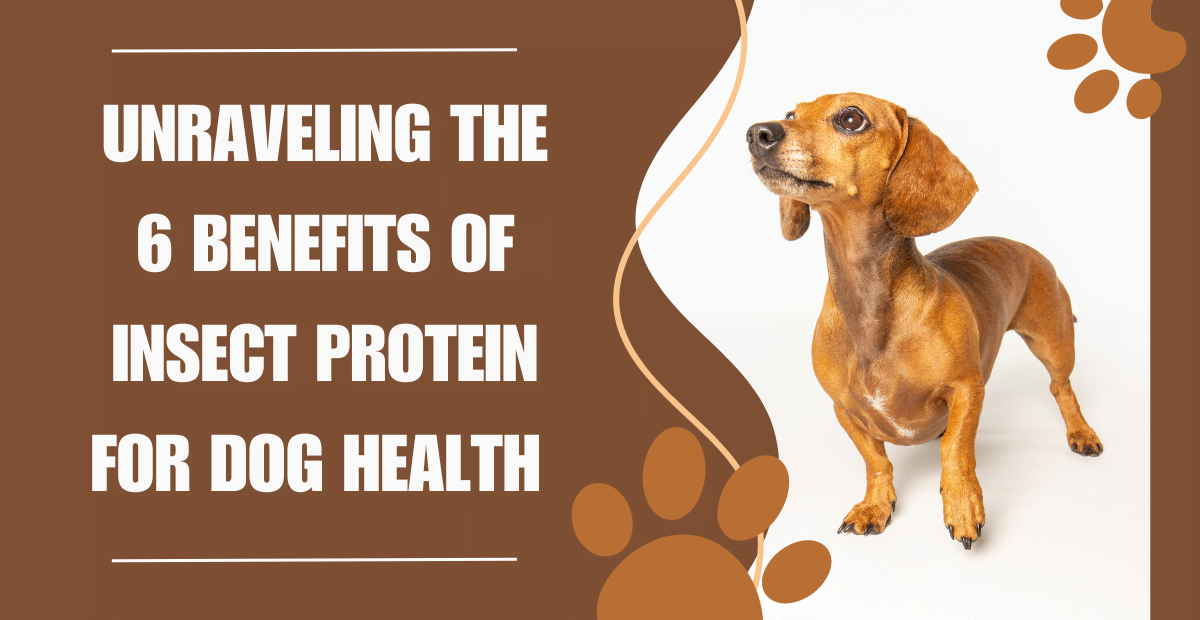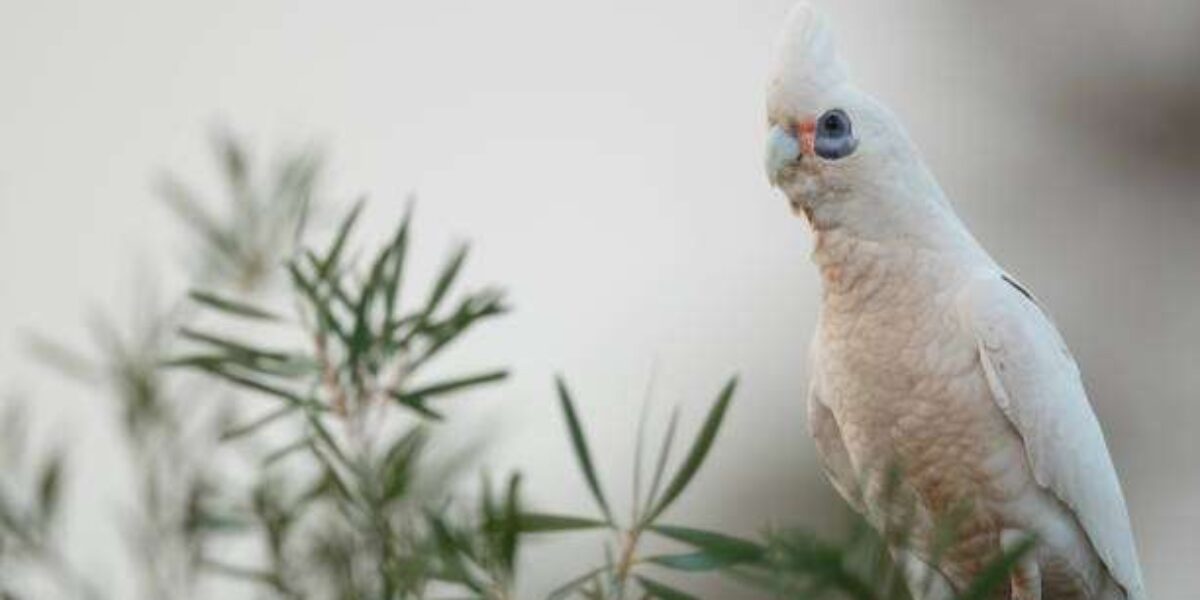Last updated on February 4th, 2024 at 04:31 pm
In the constantly changing field of pet nutrition, the inclusion of insect protein in dog diets is an unusual but sustainable trend that is gaining support. Insects are developing as a nutrient-dense and ecologically sustainable protein source for our animal friends as we look for alternatives. In this article, we explore the benefits of insect protein for dog health.
For a considerable amount of time, the pet food market has been controlled by conventional protein sources including fish, poultry, and beef. Insect protein has gained popularity, meanwhile, as a result of growing concerns about environmental sustainability and the demand for new and nourishing solutions. Insects have a considerably smaller ecological footprint than conventional livestock, in addition to being rich in vital nutrients.
Key Nutritional Benefits of Insect Protein for Dog Health:
1. High-quality Protein:
Packed with all the key amino acids dogs require for muscle growth, maintenance, and general health, insects are a complete and high-quality source of protein. For dogs that are allergic to or have dietary sensitivities to other popular protein sources, this makes insect protein a great substitute. According to Udomsil et al. [1], the essential amino acid content of crickets was found to be similar to that of eggs, chicken, beef, and pork—foods that are typically used as the primary sources of protein in dog diets. Black soldier fly larvae are becoming one of the most promising sources of protein. Based on published data, 40–44% crude protein makes up the typical content of black soldier fly [2].
2. Fat and Fatty Acids:
With their excellent nutritional value, insects make a great source of fat. Like mealworms, the crude fat content in larvae typically ranges from 14.41 to 37.1% and is higher than in imago. The lipid content of mealworm larvae is 37.10%, whereas that of imago is 14.88%. Black soldier fly contain about 35–40% lipids [2] and it is classified as a kind of “energy” bug since it is high in lipids and proteins.
3. Environmentally friendly and Sustainable:
Compared to conventional cattle farming, insect protein production is substantially more environmentally friendly and sustainable. Insects generate fewer greenhouse gasses and need less space, water, and food to thrive. Because of this, using insect protein is a sustainable option that fits nicely with the increased focus on pet care.
4. Enriched in Micronutrients:
Vitamins, minerals, and fatty acids are just a few of the important micronutrients found in insects. For the growth of young animals, insects are a rich supply of calcium and phosphorus. For the most part, insects are a good source of trace elements, such as selenium, iron, zinc, copper, and manganese. These nutrients support the health of the skin and coat, joints, and immune system in dogs, among other areas of their well-being.
5. Health benefits:
Moreover, insects provide lauric acid and antimicrobial peptides (AMPs), which may enhance immunological response and favourably impact the disintegration of the gut microbiome [3].Invertebrates and insects that are edible may include antioxidant components.

6. Digestibility:
Dogs can easily absorb the protein found in insects. Because of its composition, which is more equivalent to that of natural prey’s protein, dogs can more easily digest and absorb the nutrients. For dogs that have digestive problems or sensitive stomachs, this can be really helpful.
Novel Protein Source:
Dogs that have allergies or sensitivities to conventional protein sources may benefit from the introduction of novel protein sources, such as insect protein. Since dog food does not often include insect protein, the possibility of a dog developing an allergy to it is limited. Changing up the protein sources in your dog’s diet can help to maintain general health and stop food allergies from developing.
Selecting premium, commercially accessible insect-based dog food or supplements is crucial if you’re thinking about adding insect protein to your dog’s diet. These products are designed to satisfy dogs’ dietary requirements while guaranteeing the safety and contamination-free nature of the insect protein.
Conclusions:
Insect protein is becoming recognized as a practical and sustainable substitute as the pet food market changes to satisfy the needs of pet owners who are concerned about their health and the environment. Insect protein is upending conventional wisdom and providing a fresh outlook on dog nutrition because of its abundance of nutrients, advantages for the environment, and compatibility for dogs with particular dietary needs. Before making any big dietary changes for your dog, always check with your veterinarian to make sure it suits their specific needs.
Sources:
- Udomsil, N.; Imsoonthornruksa, S.; Gosalawit, C.; Ketudat-Cairns, M. Nutritional values and functional properties of house cricket (Acheta domesticus) and field cricket (Gryllus bimaculatus). Food Sci. Technol. Res. 2019, 25, 597–605. https://doi.org/10.3136/fstr.25.597
- Huang, C.; Feng,W.; Xiong, J.;Wang, T.;Wang,W.;Wang, C.; Yang, F. Impact of drying method on the nutritional value of the edible insect protein from black soldier fly (Hermetia illucens L.) larvae: Amino acid composition, nutritional value evaluation, in vitro digestibility, and thermal properties. Eur. Food Res. Technol. 2019, 245, 11–21.
- Borrelli, L.; Varriale, L.; Dipineto, L.; Pace, A.; Menna, L.F.; Fioretti, A. Insect derived lauric acid as promising alternative strategy to antibiotics in the antimicrobial resistance scenario. Front. Microbiol. 2021, 12, 330–337. [CrossRef] [PubMed]




